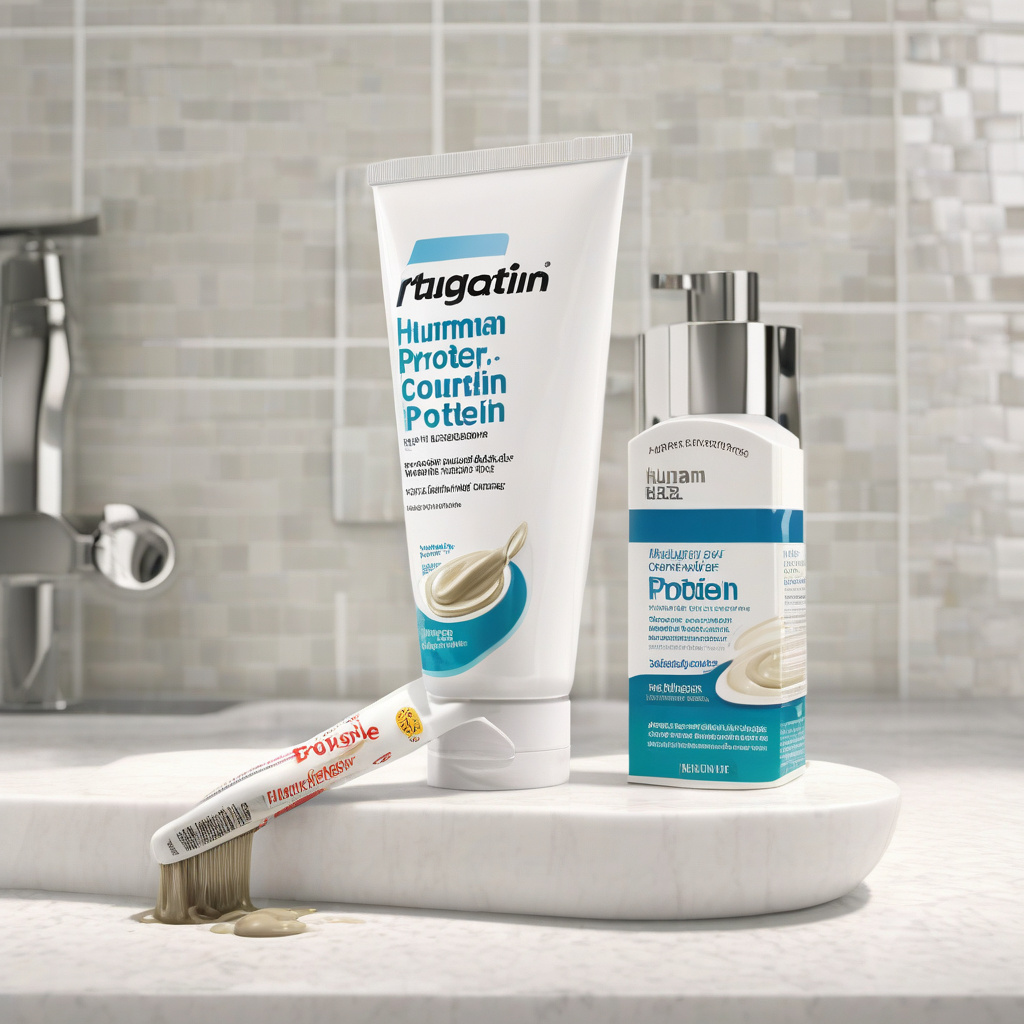Toothpaste made from human hair protein could stop decay and rebuild tooth enamel
Toothpaste made from human hair could soon join the toolkit for dental care, offering both a sustainable solution and a groundbreaking approach to oral health. Researchers have discovered that the protein found in human hair, keratin, could play a vital role in preventing tooth decay and even rebuilding tooth enamel. This innovative use of keratin could revolutionize the oral care industry and pave the way for a more eco-friendly approach to maintaining dental health.
Human hair is composed mainly of keratin, a tough and fibrous protein that is also a key component of our teeth, nails, and skin. Scientists have found a way to extract this protein from human hair and incorporate it into toothpaste formulations. The idea behind using keratin in toothpaste is to leverage its natural strength and durability to create a protective barrier on the teeth, shielding them from harmful bacteria and acids that cause decay.
One of the most significant benefits of using keratin-based toothpaste is its potential to rebuild tooth enamel. Enamel is the hard outer layer of the teeth that protects them from damage, but it can erode over time due to factors like acidic foods, poor oral hygiene, and bacterial growth. Traditional toothpaste can help prevent decay, but once enamel is lost, it cannot regenerate. However, the unique properties of keratin may enable toothpaste to not only prevent further enamel loss but also stimulate the regeneration of this vital tooth structure.
Moreover, utilizing human hair protein in toothpaste is a sustainable alternative to traditional ingredients. Human hair is a renewable resource that is abundantly available, making it a cost-effective and environmentally friendly option for oral care products. By repurposing a material that would otherwise go to waste, researchers are not only reducing environmental impact but also creating a circular economy model that promotes responsible resource management.
The potential for keratin-based toothpaste goes beyond just oral health benefits. It could also address concerns related to animal testing and animal-derived ingredients in conventional toothpaste. With keratin sourced from human hair, the need for testing on animals or using animal by-products in oral care products is eliminated, aligning with the growing demand for cruelty-free and vegan-friendly options in the beauty and personal care industry.
While the concept of using human hair protein in toothpaste may seem unconventional at first, the science behind it is solid. Studies have shown that keratin is biocompatible and safe for use in oral care products, with no known adverse effects. In fact, keratin has been used in various medical and cosmetic applications for its regenerative and protective properties, further supporting its potential efficacy in toothpaste formulations.
As research and development in this field progress, we can expect to see keratin-based toothpaste products hitting the market in the near future. Consumers looking for natural, sustainable, and effective oral care solutions may soon have a new option to consider, one that harnesses the power of human hair protein to promote dental health and environmental responsibility. Toothpaste made from human hair protein could indeed be the next big innovation in oral care, offering a unique blend of science, sustainability, and efficacy.
In conclusion, the utilization of human hair protein in toothpaste represents a novel approach to oral care that holds great promise for the future. From preventing tooth decay to rebuilding enamel and promoting sustainability, the benefits of keratin-based toothpaste are vast and far-reaching. As this innovative technology continues to evolve, it has the potential to reshape the way we think about dental hygiene and pave the way for a more holistic and environmentally conscious approach to oral health care.
Toothpaste, human hair, protein, decay, enamel












